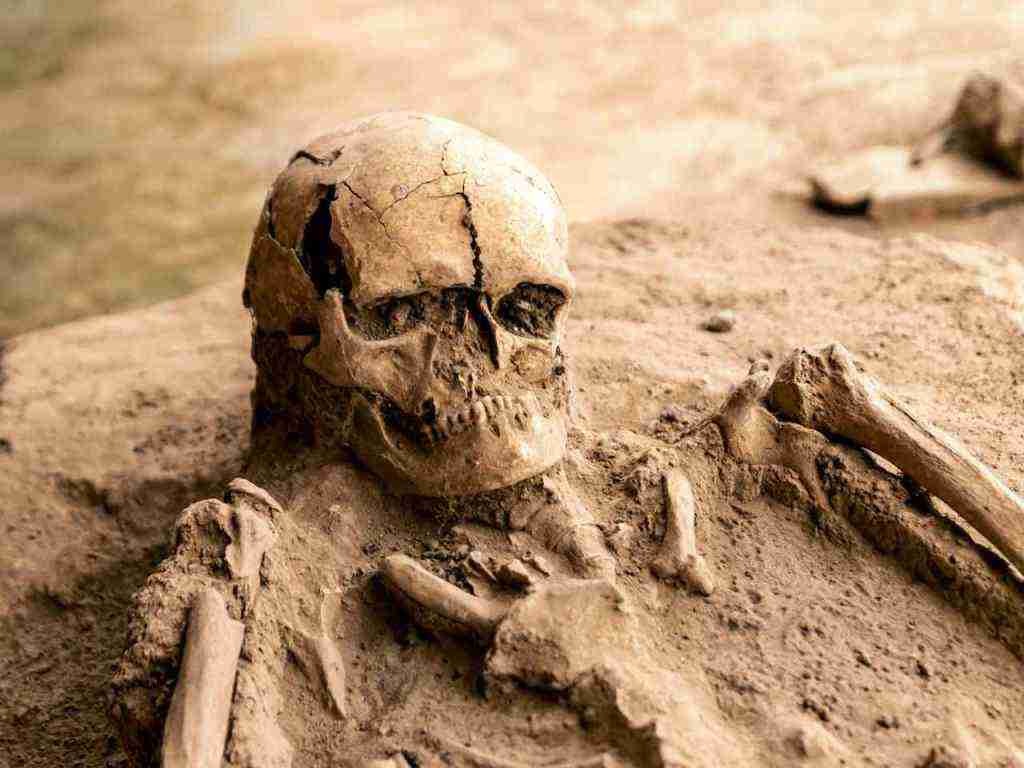Remains: Unraveling the Past, Confronting the Present
In the world of scientific exploration, few frontiers hold as much promise and controversy as ancient DNA. Like a microscopic time machine, it offers a glimpse into the lives of those who came before us, rewriting history and challenging long-held beliefs. But what happens when this quest for knowledge collides with the fundamental rights and beliefs of living communities? This is the central question posed by “Remains,” a documentary film that digs deep into the ethical quagmire of ancient DNA research through the lens of one man’s extraordinary journey.
A Danish Geneticist’s American Odyssey
Meet Professor Eske Willerslev, a world-renowned geneticist with an insatiable curiosity about early humans in North America. Think Indiana Jones meets Jurassic Park, but instead of chasing dinosaurs, he’s on the hunt for genetic secrets hidden within ancient bones. Driven by a desire to illuminate the distant past, Willerslev embarks on a multi-year expedition across the United States, his sights set on extracting and analyzing DNA from some of the oldest human remains ever discovered.
Willerslev firmly believes that these ancient genetic fragments hold the answers to some of history’s most enduring mysteries. How did the first humans arrive in North America? What were their cultures and beliefs like? And how can their stories reshape our understanding of the continent’s past? It’s a tantalizing prospect, the potential to rewrite history itself, but as Willerslev soon discovers, the pursuit of knowledge rarely comes without a cost.
When Science and Spirituality Collide
As Willerslev delves deeper into his research, he encounters a force far more complex than any scientific equation: the living descendants of the very individuals whose remains he’s studying. Across the United States, Indigenous communities are engaged in a passionate struggle for repatriation, the return of their ancestors’ remains from museums, universities, and government labs to their rightful resting places. For these communities, it’s not just about bones; it’s about honoring ancestral connections, respecting cultural beliefs, and reclaiming their history from the institutions that have long sought to control it.
Witnessing this struggle firsthand forces Willerslev to confront a truth that many scientists often shy away from: the pursuit of objective truth can have profound subjective consequences. He begins to grapple with the potential harm his research could inflict on Indigenous communities, especially if his findings clash with their oral histories or are used to further marginalize their claims to land and sovereignty. It’s a classic clash of worldviews: the scientist seeking empirical evidence versus cultures whose knowledge systems are rooted in millennia-old traditions and spiritual connections to their ancestors.
The Ethical Tightrope of Ancient DNA
Willerslev’s quest for scientific discovery becomes a journey of self-discovery as he grapples with the ethical complexities of his work. He’s forced to ask himself the hard questions: Can he, in good conscience, pursue research that could cause pain or offense to the very people he’s trying to understand? Is there a way to balance the pursuit of scientific knowledge with the respect for Indigenous beliefs and the protection of cultural heritage? There are no easy answers, no neat formulas to solve this ethical dilemma.
Through Willerslev’s internal struggles, “Remains” shines a light on the broader debate surrounding ancient DNA research. Is it possible to extract and analyze genetic material from ancestral remains without perpetuating the historical injustices and exploitation that Indigenous communities have faced for centuries? Or does every sample taken, every strand of DNA sequenced, represent another layer of trauma, another violation of sacred ground? The film doesn’t shy away from these uncomfortable truths, instead, it invites audiences to sit with the discomfort, to acknowledge the complexities, and to engage in a much-needed conversation about the ethics of scientific progress.
More Than Just Bones: Repatriation and Reconciliation
“Remains” is more than just a film about science; it’s a story about justice, about healing, about righting the wrongs of the past. The fight for repatriation, as depicted in the film, is about more than just the physical return of ancestral remains; it’s about restoring a sense of wholeness to communities that have been fractured by colonization and displacement. It’s about recognizing the inherent sovereignty of Indigenous peoples to decide the fate of their own ancestors, to honor their traditions, and to tell their own stories.

The film gives voice to Indigenous representatives, elders, and community leaders who speak powerfully about the spiritual significance of repatriation. For them, it’s not just bones being returned; it’s ancestors coming home. It’s an act of healing, a way of mending the broken connections between the past, the present, and future generations. “Remains” underscores the importance of listening to these voices, of understanding the historical context, and of approaching scientific endeavors with humility and cultural sensitivity.
Unraveling the Threads of the Past, Weaving a More Just Future
In a world grappling with issues of social justice, historical reckoning, and the legacy of colonialism, “Remains” couldn’t be more timely. It serves as a potent reminder that the pursuit of knowledge cannot be divorced from ethical considerations, especially when that knowledge comes at the expense of marginalized communities. Willerslev’s journey, though centered on ancient DNA, speaks to a universal truth: progress without understanding, without empathy, is no progress at all.
As the film reaches its conclusion, it leaves audiences with a profound sense of hope. By confronting the ethical dilemmas head-on, by engaging in open dialogue with Indigenous communities, and by prioritizing respect and understanding, “Remains” suggests that a different path is possible, one where scientific exploration and cultural preservation can coexist, where the threads of the past can be woven into a more just and equitable future. It’s a powerful message for our times, a call to action for scientists, policymakers, and everyday citizens alike to consider the human cost of progress and to ensure that the pursuit of knowledge never overshadows the fundamental rights and beliefs of those who came before us.
